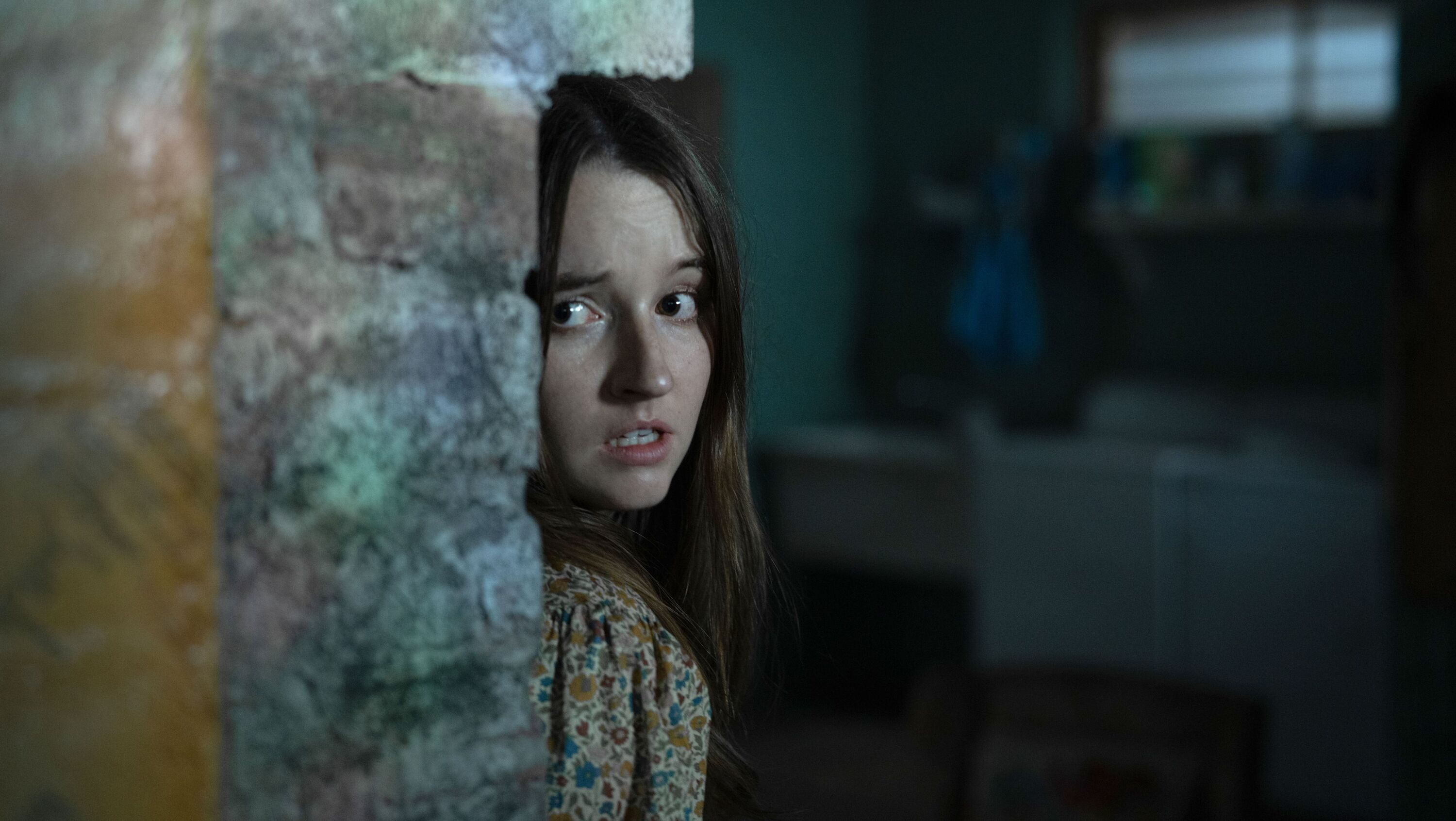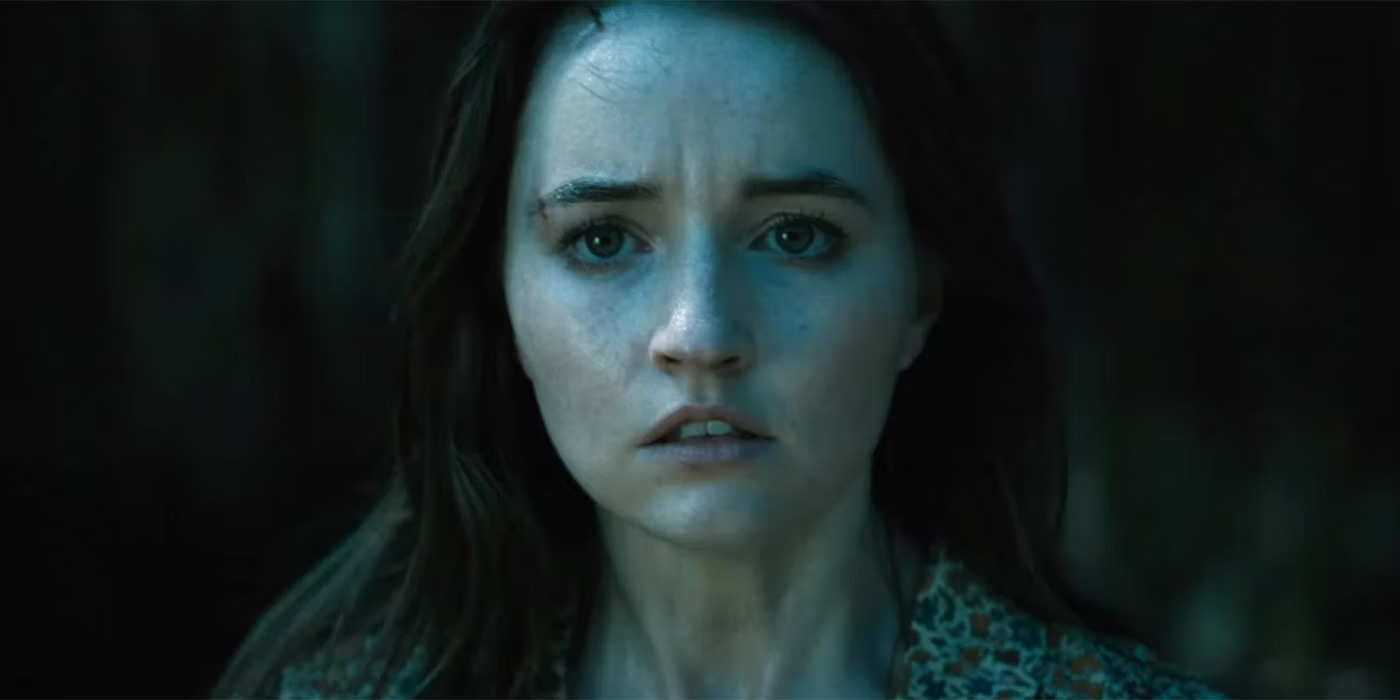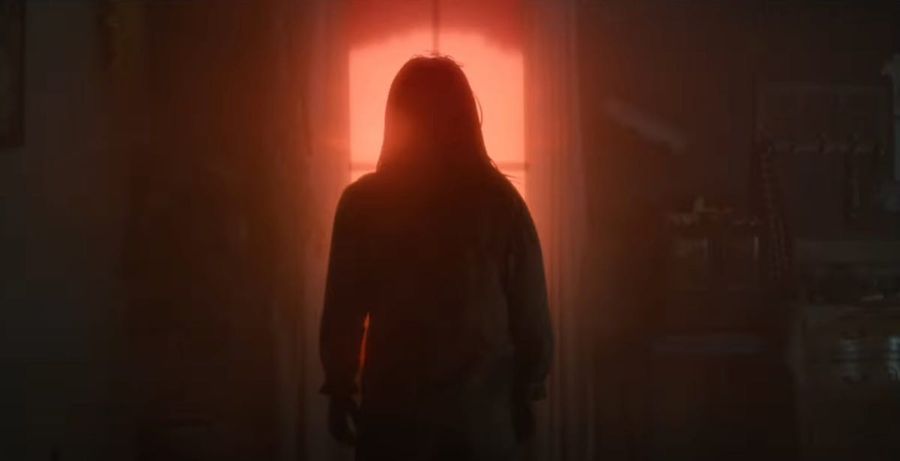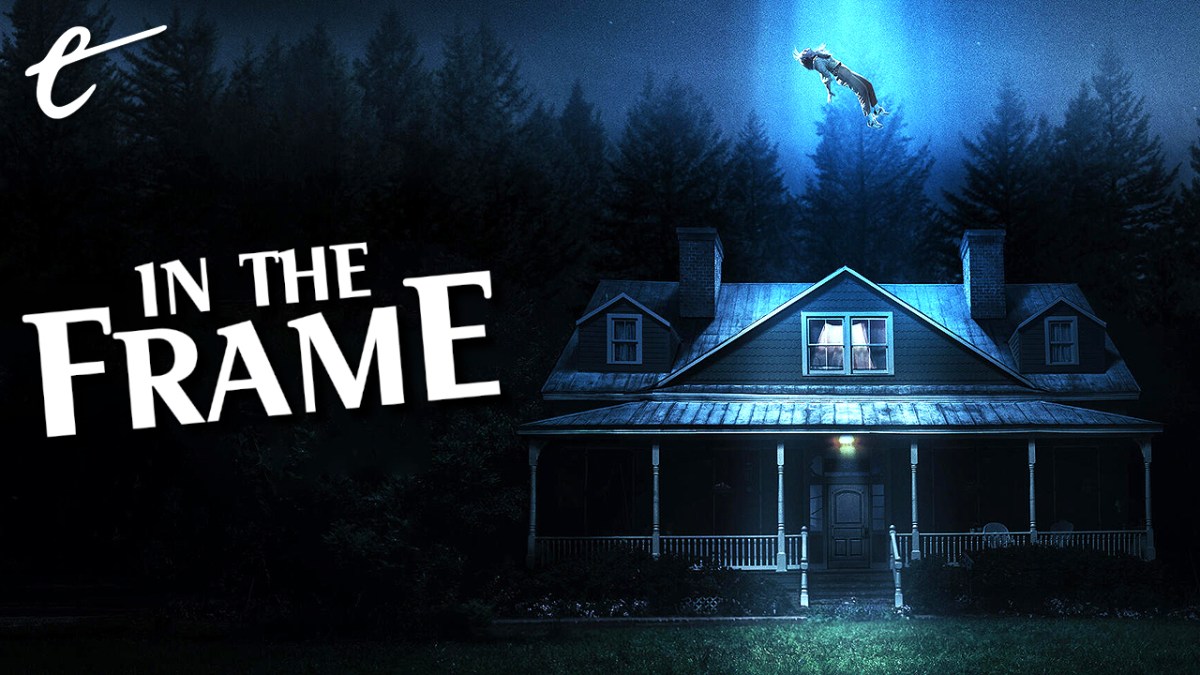This discussion contains spoilers for No One Will Save You.
No One Will Save You is a clever twist on the classic home invasion narrative. Brynn Adams (Kaitlyn Dever) is a young woman who lives a quiet existence in rural America. Late one night, she wakes up to hear something moving downstairs in the house where she lives alone. It’s an alien creature, and it is not alone. The rest of the movie’s runtime finds Brynn desperately trying to make a stand against these extraterrestrial visitors, with no help to be found outside her home.
At its core, No One Will Save You is a study of isolation. Much has been made of the fact that the film is mostly silent, containing only a single line of spoken dialogue across its 93-minute runtime. However, it’s obvious from the outset that Brynn has nobody to whom she can talk. Since her mother’s death in 2019, Brynn has lived alone on the family farm. She has had no meaningful contact with the outside world. Why would she need to speak?
In the film’s opening minutes, audiences get a snapshot of how Brynn lives. The closest thing that she has to human contact is the mail-order seamstress business that she operates, personally altering dresses and returning them wrapped in ribbons with handwritten “thank you” notes. Brynn tries to live a full life. She writes letters to her deceased best friend, Maude (Dari Lynn Griffin). She buys a set of markers for the floor so she can learn how to slow-dance by herself, without a partner.
It’s tempting to read No One Will Save You as a pandemic metaphor. After all, audiences who lived through lockdown will undoubtedly empathize with Brynn’s isolated existence, in which human interaction was reduced to a parody of itself. It feels pointed that Brynn’s mother died the year before the pandemic — something that is beginning to feel like a trend in these sorts of movies to avoid directly invoking the pandemic, like the death of Sonya Anderson (Rachel Keller) in A Man Called Otto.
However, director Brian Duffield wrote No One Will Save You in 2019, before the pandemic. While that resonance is present and hard to deny, it is entirely coincidental. Instead, No One Will Save You is about something much broader. It is a film offering a commentary on contemporary America, speaking to a shift in the national mood, and in the idea of what community looks like in an increasingly polarized and antagonistic cultural landscape.

No One Will Save You isn’t entirely about Brynn’s experience. It is particularly interested in Brynn’s relationship to the larger world, how she is seen and perceived by others. After the movie’s title card, Brynn is introduced studying her own face in the mirror. She practices being seen, putting on a pleasant smile and waving to nobody in particular. The film returns to this idea repeatedly. When Brynn gets into her car to drive to the local town of Mill River, she rehearses interaction in the mirror.
Over the course of the film’s runtime, it is revealed that Brynn did something irredeemable. As a child (Elizabeth Kaluev), during a heated argument with Maude (Evangeline Rose), she picked up a rock and struck her best friend across the face. It was an impulsive and childish decision, one driven by caprice and anger. However, it led to Maude’s death. “I don’t think I’ll ever forgive myself,” Brynn writes in her letters to the friend that she killed. It seems that Mill River won’t forgive her either.
Outside the house, Brynn often wears sunglasses to avoid being seen. When she spots Maude’s mother (Geraldine Singer) and father (Dane Rhodes) at the graveyard, she hides behind a car to avoid confrontation. Posting her dresses out to her paying customers, she pulls right up to the mailbox and looks around as if afraid that she will be caught. She is very aware that people gossip and speculate about her. The word “freak” can be heard in the sound mix at one point, as she flees that town.
According to Duffield, No One Will Save You is the story of a character who “really wants a community and doesn’t think she’s deserving of one.” Indeed, community is something of a recurring motif in the film. Early on, it’s established that Brynn has built an idealized model of Mill River in her home, the town that she can never be a part of. A cottage-shaped birdhouse hangs over her mother’s grave. It’s a reminder of what Brynn can never have.
When Brynn kills that first alien visitor, she looks for help. However, none is forthcoming. She visits the local police station, and leaves after Maude’s mother spits in her face. She then tries to escape Mill River on a bus, but that descends into anarchy when the local mailman (Zack Duhame) attacks her. In a very telling sequence, Brynn flees the stopped bus on foot and finds herself back at the graveyard. She seeks sanctuary in the church, but the doors are all locked. Nobody is home.
No One Will Save You plays as a biting commentary on small-town life. There is an inherent and nostalgic romance to the idea of small town America, “Main Street, U.S.A.” It’s evoked by Ruby Murray’s “Knock on Any Door,” a song that bookends the film, which promises “a smile on every face” to go with “consolation and some friendly conversation.” In nostalgic American consciousness, the small town is a place where everybody knows everybody else and where people stick together.

Of course, Brynn’s experience is the opposite of that. She can never have that idyllic small-town existence. That sense of community no longer exists. It ties into a broader shift in the perception of small towns in American popular consciousness. These towns are no longer presented as idealistic spaces, but paranoid ones. They are no longer framed as welcoming environments, but hostile ones. In these rural environments, there often seems to be a wariness of the idea of community.
It becomes very clear that Brynn is on her own. She will have to fend for herself. The local authorities and civic institutions can no longer assist her. Indeed, what’s striking about No One Will Save You is how ruggedly individualistic it is. There is a recurring suggestion that this alien invasion is happening around the world, that it is not an isolated event. However, there is never any sense of a coordinated response to it. Nobody’s hands are on the steering wheel.
“That was part of the fun,” explained Duffield, “at every turn, how do you make it feel like it’s an insurmountable problem for Kaitlyn to deal with these guys because they are smarter than her? She can get lucky, but there’s never a moment where you’re saying, ‘Oh, she’s going to nuke the ship.’” No One Will Save You is not a story of humankind overcoming an alien invasion, like in Independence Day. Even in other isolated rural invasion stories like Signs, there tends to be a sense of collective triumph that No One Will Save You declines to offer.
Asked to account for the film’s title, Duffield stated, “I thought it mostly was about the fact that there is no “one.” Like that was the key thing. It’s really up to her [to] do it or to figure it out. It’s not the kind of thing where she’s launching the torpedo into the Death Star. It’s not that kind of a movie.” Ultimately, Brynn is fighting for her own life. She is not going to topple these invaders single handedly. As the film itself concedes, Brynn can only fight against these aliens for so long before being overwhelmed.
This certainly resonates. There is a skepticism about humankind’s capacity to deal with an existential threat of this nature, particularly for people of Brynn’s generation. Given how those in power have struggled to respond to the great recession, climate change, or even a global pandemic, what reason is there to believe that there could be a coordinated response to something as immediate as an actual alien invasion? No One Will Save You taps squarely into that millennial cynicism.
The best that Brynn can do is to look out for herself. Throughout the film, the audience is aware that Brynn is being watched. There are repeated overhead shots looking down at Brynn, as if the camera is looking through the eyes of the alien visitors. At various points, the camera offers a close-up of the aliens’ big black eyes studying Brynn, recalling the visitors from Wells’ War of the Worlds. Ultimately, Brynn is “scrutinized and studied, perhaps almost as narrowly as a man with a microscope might scrutinize the transient creatures that swarm and multiply in a drop of water.”

No One Will Save You uses the classic “grey” aliens associated with UFO lore. “I love that design,” Duffield admitted. “And then there was the movie specific reasons [sic], which was knowing that they were going to show up five minutes into the movie, they need a face that Kaitlyn can act opposite.” While the creatures are undeniably alien, they have a familiar shape. Their faces don’t look human, but are recognizable as faces. They have eyes, and the film can look at and through those eyes.
Doctor Who writer and X-Files critic Paul Cornell has long been fascinated by these aliens. He sees the design’s enduring appeal as a reflection of guilt. “[O]ne of the things that makes the Greys the only new folk monster to really catch on is that, in so many ways, they’re what we did (starving babies, shaved lab animals, concentration camp victims) returning to get us,” he explained in a promotional interview for his comic book series Saucer Country. Guilt is certainly on Brynn’s mind.
The aliens provide a way for Brynn to externalize her trauma. They allow her to relive that fateful moment with Maude as a child, stepping outside herself. Towards the climax of the film, Brynn’s alienation becomes a source of strength. She can comfort her younger confused self. In doing so, perhaps she can offer herself the forgiveness that her community has refused her. There’s a level of artful abstraction here; the aliens watch Brynn, who is in turn watching her younger self.
If no one will save her, then maybe Brynn can save herself. That just might be enough. Brynn refuses to be subsumed into the alien collective, to be implanted with an alien parasite, or replaced by an alien doppelgänger. At the end of the movie, Brynn seems to be the only individual left in a world that the aliens have remade. It’s a grotesque parody of 1950s small-town Americana, complete with a jaunty musical number. Brynn performs a version of that happy small-town life long denied her.
It’s a striking closing shot. Brynn finishes her dance routine and gestures at the camera. She’s out of breath, holding a stage smile for the audience like Pearl (Mia Goth) in Pearl, Sally (Liza Minelli) in Cabaret, or even George (Jean Dujardin) and Peppy (Bérénice Bejo) in The Artist. However, the audience is allowed no insight into Brynn’s current mental state. The camera just pulls up and back, leaving her to this new world. Finally, Brynn is free of the scrutiny of an alien gaze.






Published: Sep 25, 2023 11:00 am